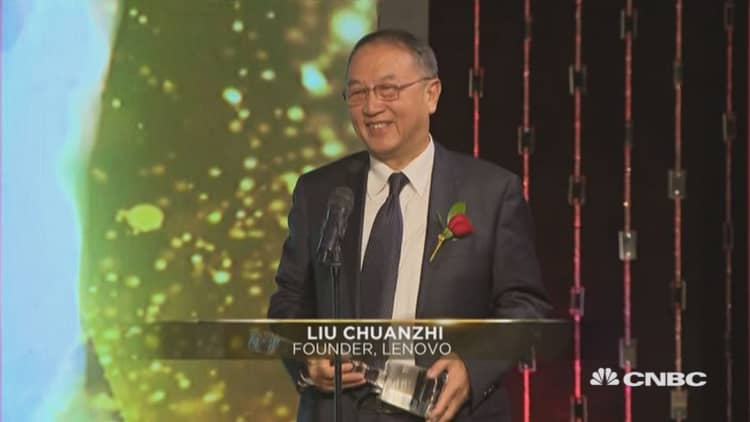
Nearly a dozen years after its acquisition of IBM's personal computer (PC) business, Lenovo's bid to transform from a China-based business to a global company appears to have proven the skeptics wrong.
The $1.75 billion deal made Lenovo the world's third-largest PC company at the time. The PC maker became the world's top PC company in 2013 and has since expanded its reach to the tablet and smartphone markets.
Originally called Legend Computer, the PC company began life in 1984 in a guardhouse in Beijing.
Liu Chuanzhi, the current chairman of Legend Holdings and founder of the Lenovo Group, had borrowed the yuan equivalent of $25,000 from the Chinese Academy of Sciences, where he worked as a researcher, to test his capabilities and see what he could come up with in the personal computer space.
His timing was good because the Chinese Communist Party had started pursuing economic reforms and adopting "socialism with Chinese characteristics." "I felt the time for new hope had arrived," Liu said of the government's decision to move to a market economy in the 1980s.
"When I first started work, it was at the end of the Cultural Revolution but I was restricted," Liu said, "I wasn't able to do anything so I felt really helpless at the time."
Nevertheless, Liu and his team of researchers stood out from the market because of their ability to program globally imported PCs with a module that allowed the machine to read and write Chinese characters. "With this, we managed to help more Chinese people use the PC," Liu said.
According the Liu, the 2005 IBM deal was necessary for Lenovo's survival. "If our business was restricted to the Chinese market, we might have faced stagnation and died off," Liu told CNBC's "Managing Asia."
However, the takeover wasn't all smooth sailing. The divergent views of Yang Yuanqing, Lenovo's current chief executive, and the then-CEO of IBM's PC arm led to friction between both sides.
"Frankly speaking, Yang was right (and) … the American was rather myopic in his vision for the company. At that time, the computer industry was experiencing a transformation from enterprises buying computers to customers purchasing them," Liu said.
The existing Thinkpad line was targeted at enterprises. But developing a new product line for consumers would have required considerable investments that the American CEO was unwilling to commit at the time, said Liu.

As a result, Liu returned as chairman to resolve the crisis and turned the company back to the path of profitability. "Cultural conflict is inevitable, but it is important not to politicize it and make it into a clan war," he said.
Going forward, Liu says that the PC industry will continue to shrink. "The total pie is declining but Lenovo's share is still increasing," Liu said, pointing to Lenovo's developments in its smartphone business as leading the way forward.
"Over the past 5 to 6 years, (the smartphone segment) hasn't been that successful … because it made hundreds of models a year to satisfy the demands of the telcos but this resulted in lower end smartphones," Liu said.
However, he's optimistic that things will turn around. "After acquiring Motorola, we've been making higher quality smartphones (and) launching about 1 or 2 models a year," Liu said.
"After using the smartphones myself, I find the quality has improved remarkably," he said.



